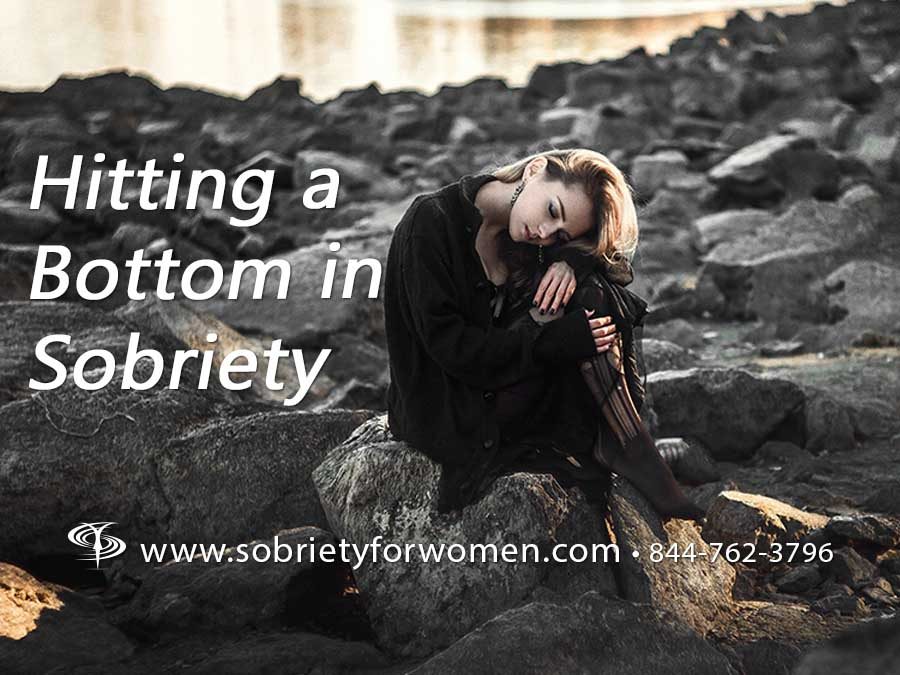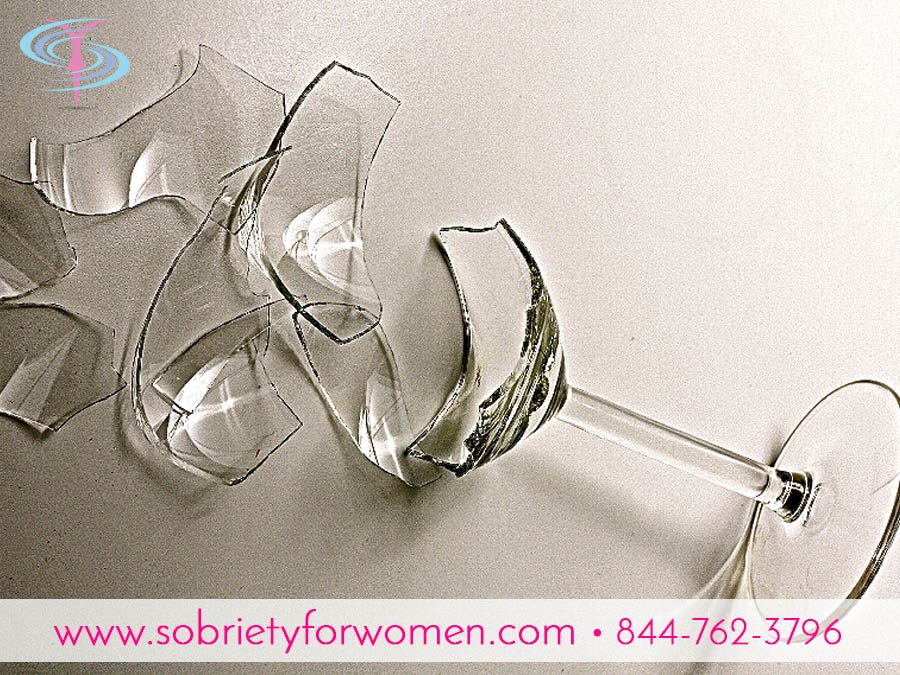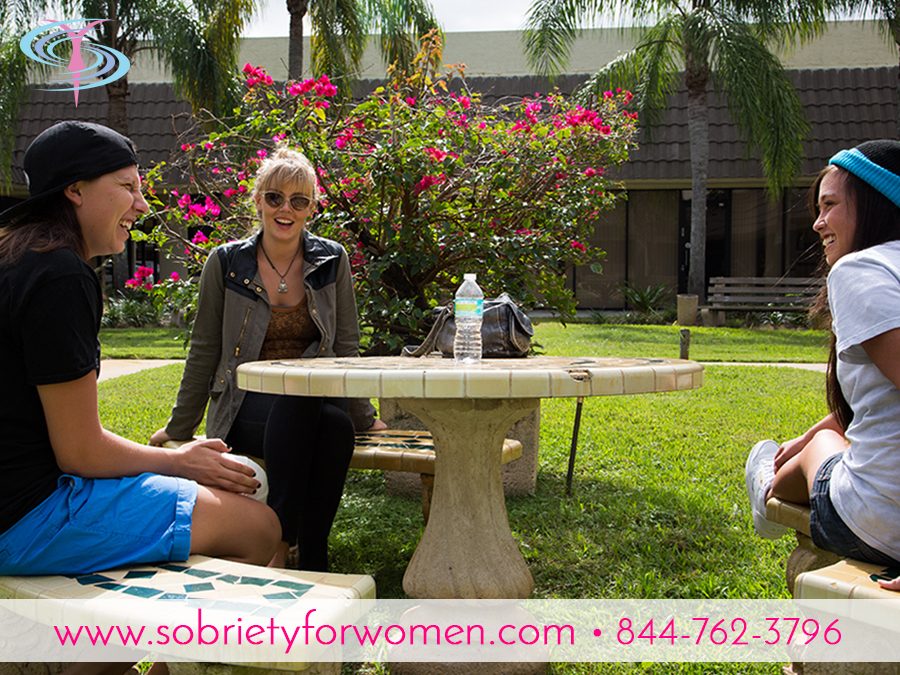by Fiona Stockard | Jul 16, 2013 | Recovery
Addicted to Recovery
Hi, I’m Krissy and I’m an alcoholic. I grew up in a small town on the outskirts of Boston. From as far back as I can remember, I felt apart from, instead of a part of. Until I found alcohol, anyway!
I can’t remember when I learned how to tie my shoes or what my first birthday was like, but I can tell you EVERYTHING about my first drink. I can tell you where I was, who I was with, what I was wearing, even what the weather was like! After that first drink, I couldn’t imagine living my life without alcohol. For me, alcohol was a channel, a way to be comfortable in my own skin. I never realized it was going to be a catalyst for grave destruction.

In my early twenties, I worked as a bartender and went to college. Daytime drinking and partying all night were normal. Needless to say, I soon crossed that invisible line where alcohol was a need and no longer a want. I’d tell myself I needed alcohol to feel normal, or that I’d just have one. Turns out one drink is too many and a thousand drinks are never enough. When the party was over, when everyone was moving on with their lives, I was left alone. I was left alone with my disease.
It wasn’t too long before I found myself suffering from an anxiety disorder. I unsuccessfully tried to fix this with alcohol. Panic attacks dominated daily life, which, in turn, fueled my addiction. The only solution I knew was alcohol.
By now, I was drinking every night, often to the point of functioning blackouts. I found myself in jails, hospitals, and more unfamiliar places than I can count, but I still wasn’t willing to admit I had a problem. However, I was willing to quit drinking for long stretches. Of course, these would be followed by destructive relapses. Half-measures availed me nothing!
I was told, on my last trip to the ER, if I continued down this road, I’d die. By the next morning, I was willing to admit total surrender to my disease. I admitted that I was an alcoholic, powerless and hopeless. I crawled my ass into a sunrise meeting, broken and scared. This is when my recovery journey began.
Honesty, openness, and willingness were taught to me. I walked through hell for over a decade and I was finally ready to experience freedom. I opened up my heart and my mind. Amazingly, the mental obsession began to lift and people could see glimpses of my old self peaking through.
Today, I am truly grateful to feel what it’s like to be recovering from my disease. I’m finally at peace with my past. I have a sponsor, work the steps, and participate in service to keep myself focused in my recovery. My life has miraculously changed and for that – I’m truly grateful.
Follow Addicted To Recovery on Facebook Today!

by Fiona Stockard | May 14, 2013 | Addiction Treatment, Recovery
Pain in Sobriety
It’s like a rite of passage everyone knows about and no one is looking forward to. It’s not a secret by any means. It’s talked about openly and honestly in meetings all over the world. It’s the big show everyone knows they have tickets for and will see at some point. Okay, I’m out of analogies, but you get what I’m talking about – hitting a bottom in sobriety.

Don’t get me wrong, I’ve hit an emotional bottom in sobriety before. This isn’t my first rodeo. I’m also positive this won’t be my last. Nonetheless, here I am. Hi!
Just How Do You Reach a Bottom in Sobriety?
Let’s do a quick check on what led me to this bottom. First, let’s talk about meetings. For the past month or so, I’ve been doing to one meeting a week, unless I’m the speaker. Then I’d go to two meetings a week. You’d think that would count, but for me it doesn’t. Okay, so my meeting attendance is way down. Check. What’s next?
God. Now, God’s my Homie. I love God. I’m not ashamed to say that by any means. Lately, though, I’ve let a few things come between my relationship with God. I know that when I let my spiritual connection slip, some form of pain is headed my way.
What’s left on the checklist? Oh, right, carrying the message. Taking women through the steps has been a constant in my life. Lately, I’ve put it on the back burner. Because I’m so important, right? Welp, I’ve been slacking in that department as well.
Time for a quick recap on my checklist. How did I hit this emotional bottom in sobriety again?
– Slacking on meetings
– Slacking on God (including, but not limited to, praying, mediating, and self-inventory)
-Slacking on helping others
Let’s stop here. Three is more than enough. Clearly, not doing these three things has led to a bottom in sobriety. Trust me, it’s not fun! Being restless, irritable, and discontent are NOT qualities of life I enjoy. I become short-tempered, easily flustered, and annoyed at pretty much everyone in the world. Yep, the entire world.
I’m sure everyone reaches different types of sober bottoms and the characteristics that lead to them. I’m also sure that everyone reacts to sober bottoms differently. This is my experience though. This is how I reached a point where I’m miserable as f**k and stone cold sober.
Getting Out of That Pesky Bottom
So, now what? I’m here at bottom. Do I write a blog about it and tell other people how much it sucks be here? Well, that’s a start. I feel better seeing this on paper (or a computer screen) and realizing exactly how I ended up here. In fact, only fifteen minutes ago I was thinking, “sneaking bottom came out of nowhere!” Obviously, this isn’t the case. My bottom’s been coming for weeks due to my lack of action.
Now, I pray. I’m going to remind God I’m here and apologize for leaving again. After that, I’m going to a meeting. I need them, even when I think I don’t. I need them especially when I think I don’t. They’ve helped to keep me sane throughout all my years in sobriety. Last, but certainly not least, I’m going to work with another alcoholic. Not only is helping new women a bright spot in my life, but it instantly makes me feel better.
Hitting a bottom in sobriety is no fun (no s**t, you’re probably saying). Taking preventative measures is a MUCH easier route. Continue to do the things that got you sober in the first place. However, if you do end up resting on those old laurels, if you do end up slacking like me, just resume taking action! It’s that simple, I promise.

by Fiona Stockard | Feb 6, 2013 | Addiction Treatment, Recovery
Addiction is a gruesome little fellow, huh? He comes in, takes over our lives, and ruins our dreams. He makes us believe he isn’t a disease. He makes us believe he’s just a phase, just a problem.
In treatment, my therapist said addiction and alcoholism were diseases. I didn’t agree. She compared alcoholism to cancer. I thought to myself, “I wish I knew this growing up! I could have gotten my parents off my back!” I could only dream of using this disease excuse when my parents were pointing flashlights in my eyes to check the size of my pupils.
I argued with my sponsor that alcoholism and addiction weren’t diseases. I thought a disease was something physically wrong with you. After all, I’d seen my grandfather fight, and beat, cancer. I watched my grandmother die of throat cancer. Now cancer, that’s a disease. Alcoholism? Addiction? They’re not diseases. It’s just a phase I’m going through, I’ll be fine.
I Started to Change My Mind
The more I read the Big Book of Alcoholics Anonymous, the more I began to change my mind. I started to look at alcoholism and addiction as diseases. I learned that my disease centered in my mind, not my body. I could be entirely normal in all other respects, but when it came to drug and alcohol? Well, then my thinking was simply wrong.
The idea I could control my use is a symptom of my disease. The idea that it’d be different this time is a symptom of my disease. The idea that I had a choice in whether to drink or not, that’s a symptom of my disease too.
I began to learn I was INSANE. I began to learn that even though days, weeks, months, and years pass, my addict mind still exists. The only way I can continue being sober is to understand that I’m sick and take my “medicine.”

I believe everyone has their own medicine. If you’re diabetic, you need insulin. If you have an infection, you need antibiotics. If you’re an alcoholic, you need the twelve-steps of Alcoholics Anonymous. I work hard to keep my demons at bay. I accept that this recovery gig is a lifelong process.
Alcoholism is a Disease!
AA’s Big Book speaks of a jumping off point. This is when we can’t image life with, or without, alcohol and drugs. We have two choices. We can do some work (get a sponsor and work the twelve-steps), or continue drinking and using (to the “bitter end” as the book says).
Today it’s easy for me to say I’ll do the necessary work. This is because the bitter end is just that – a bitter, lonely, and destructive end. To put it another way, I do the work because alcohol beat me up enough. When I was in early sobriety though? Well, that’s another story. Many of us addicts and alcoholics decide to go to that bitter end. We decide this because alcoholism and addiction are diseases. They’re disease that make us think we’re different. They make us think a lonely death is better than a period of uncomfortable growth.
Addiction and alcoholism are diseases that affect our minds. They warp our thinking. They also affect the lives that we touch. They destroy families, romantic relationships, friendships, and countless other things.
Once someone starts to recovery from alcoholism, things are much different. Today, I’m a stronger and more faithful person because of my disease. Looking into the abyss, well, it changes you. We can look into that abyss and get better, or we can look into it and die.
The choice is ours. There’s always hope, ladies. We can ALWAYS recovery from our addiction. We can ALWAYS recovery from our alcoholism. We can ALWAYS bounce back. We can ALWAYS get better. There’s doesn’t always have to be a bitter end.

by Sally Rosa | Jan 25, 2013 | Addiction Treatment, Recovery

Treatment is just the beginning. I used to hate when people told me that! It didn’t matter if they were therapists, family, or friends. I didn’t want to hear it! Turns out they were telling me the truth though.
Moving into a sober-living house (a halfway or three-quarter house) after treatment is incredibly helpful. Early sobriety is tough. Being in a structured, safe, and sober environment makes the transition from treatment to real-life easier. Simple as that.
Most newly sober women don’t know what to expect from a halfway house. They think it’s going to be dark, dank, and depressing. Or they think it’ll be a place to use without anyone knowing. Or they think something else crazy. I thought all those things and more!
The truth is that living in a halfway house provides strong community support. It’s yet another safety net against relapse.
The Top 10 Things You Should Do in a Halfway House
1) Follow the rules
2) Go to meetings
3) Get a sponsor
4) Make friends with other sober women
5) Get a job and begin to become self-sufficient
6) Get honest – ask for help if you think about using
7) Start praying and building your relationship with God
8) Be grateful for this opportunity at a second chance
9) Be respectful of your roommates – that means clean up after yourself!
10) Become a productive members of society – get in a routine and stick with it
The Top 10 Things You Shouldn’t Do in a Halfway House
1) Don’t use drugs or drink!
2) Don’t continue to act out (on an eating disorder, sexually, excessive shopping, etc.)
3) Don’t sleep all day
4) Don’t relay on everyone else to support you
5) Don’t only hang out with newly sober people – get some old-timers in your life!
6) Don’t be disrespectful to your roommates or house managers
7) Don’t get violent in the house
8) Don’t fall too far behind on rent
9) Don’t continue to do the same things and expect different results!
10) Don’t think you can do this on your own – if everyone else needs help, so do you!
Follow these lists to guarantee your success while living in a halfway house!
by Fiona Stockard | Dec 21, 2012 | Addiction Treatment, Recovery
Written By: Fiona Stockard
How to Stay Sober During the Holidays

Holidays and I Don’t Mix!
The holidays were always a strange time for me. This was the time of year to be happy, to be content, to spend quality time with the people I love. However, even before active addiction, I was so far from the realm of happiness that “joy” was a foreign word. I loved my family, but had no idea how to show it.
Once I began using, things quickly spun out of control. During the first holiday season of my active addiction, I burned down our Christmas tree! That might sound like a joke, but I promise, it’s depressingly true. Let’s just say that smoking weed around flammable pine needles isn’t a good idea.
A few years into my addiction and everything was a mess. My family wouldn’t let me stay at their house during the holidays (or anytime else, for that matter), or I wouldn’t even be invited.
I was as hopeless an addict as they come. If, by some miracle, I was invited home for Christmas, I’d leave a mess in my wake. I’d come in, take what I wanted, and leave. I’d get drunk off my family’s top shelf booze and create havoc.
The Beginning of the End
The final Christmas of my active addiction was particularly rough. I stole my parents car, crashed it, and got arrested. My poor parents! They had to bail me out of jail, again. I’d sworn to them, only a few months earlier, that they’d never EVER have to bail me out again.
You know when you’re little and someone says they’re disappointed with you? You know how that’s worse than hearing they’re mad at you? Well, that Christmas I got something to the effect of “you ruined the holidays AGAIN. You’re destroying the family and you don’t even care!” Ouch, right? Here I am, the holiday-cheer destroyer, running wild, killing moments of happiness with my addiction.
How to Stay Sober During the Holidays
A few months after that disastrous Christmas, I went to my first treatment center. I got help for my addiction and began to make my way into sobriety. I relapsed, but I’d been introduced to the rooms of recovery, and I had hope.
The past few Christmases have been just a LITTLE bit different. I’m able to be peaceful and happy. I’m surrounded by so many people I love and so many people that love me. I get to be grateful. I knew when I got sober that I wanted to stop drinking and using. What I got, though, was a life beyond my wildest dreams.
So, the million dollar question, how can you stay sober during the holidays? It’s incredibly simple. The best way to stay sober during the holidays is to have recovered from addiction! Simple, right? I promise, it is.
Get a sponsor and work the twelve-steps. Accept you’re an addict and alcoholic. Find out what your character defects are. Clean up the mess you leave in your wake. Continue to seek spiritual growth on a daily basis. If you do those things, you’ll stay sober during the holidays.
If you’re struggling with active addiction, or with that strange time known as the holidays, hang in there! If your family doesn’t welcome you back with open arms, wait for it. These things come in time. These things come after doing some work. The holidays are filled with love and gratitude. Guess what? So is sobriety!







